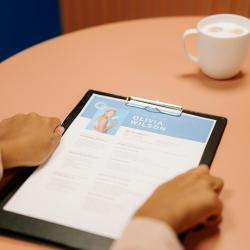How to Prepare for an Interview When Changing Careers
Changing careers is an exciting yet challenging journey, often characterized by the anticipation of starting afresh and the uncertainty of stepping into a new field. One of the critical milestones in this journey is the interview process. Successfully navigating this stage can be pivotal in landing your desired role. Here’s a comprehensive guide to help you prepare effectively for an interview when you're changing careers.
1. Understand the Job and Industry
Before you step into any interview, it's vital to immerse yourself in understanding the new industry and job role comprehensively. Research the company's background, its culture, market position, and recent developments. Understand the industry standards, terminologies, and trends to demonstrate that you speak the sector's language. This knowledge not only aids in answering questions confidently but also shows your genuine interest and commitment to the new field.
2. Identify Transferable Skills
Changing careers often means leveraging the skills and experiences from your previous job(s) that are relevant to your new role. Identify the core skills that are transferable, such as communication, project management, leadership, or problem-solving. Prepare specific examples illustrating how you've successfully applied these skills in different situations. This will help bridge the gap between your past experiences and your future role.
3. Earn Additional Qualifications if Necessary
Sometimes, pivoting to a new career might require specific qualifications or certifications. If so, consider enrolling in relevant courses or training programs that align with your new career path. Even if you're in the midst of a certification, mentioning your proactive approach to gaining new knowledge can be a strong point in your favor during interviews.
4. Prepare a Compelling Career Change Story
Your narrative on why you’re changing careers can be one of your most potent tools in an interview. Develop a concise and compelling story that explains your motives for making the switch. Highlight the aspects of your previous career that you enjoyed but wanted to evolve, and clearly articulate how this new role aligns with your long-term goals. Personal and professional growth stories often resonate well with interviewers.
5. Anticipate and Prepare for Common Questions
Prepare for common interview questions, especially those that relate to your career change. Expect questions like "Why do you want to change careers?" or "What can you bring to this role with your background?" Practice responses that reflect your research, emphasize your transferable skills, and align with the job you are applying for.
6. Conduct Mock Interviews
Practicing with mock interviews can significantly enhance your confidence and performance. Recruit a friend, mentor, or career coach to conduct a mock interview, specifically focusing on your career transition. Practice responding to industry-specific scenarios and behavioral questions to refine your delivery and receive constructive feedback.
7. Network and Seek Advice
Networking can be invaluable, especially when entering a new field. Connect with professionals already in the industry through platforms like LinkedIn. They can offer valuable insights, share advice, and perhaps even provide a referral or endorsement. Attend industry meetups, webinars, and forums to build connections and expand your understanding of your new career path.
8. Adjust Your Mindset
Finally, ensure that you enter the interview with a positive and adaptable mindset. A career change can be daunting, but it’s also a chance to pursue your passion and demonstrate resilience. Show enthusiasm and readiness to learn and adapt—qualities that are attractive to any employer.
Conclusion
Preparing for an interview when changing careers requires a blend of research, self-assessment, and strategic planning. With the right preparation, you can convincingly demonstrate why you’re the best fit for the role despite your unconventional background. Embrace the process with confidence, and view each interview as a learning opportunity and a step closer to your new career goals.






















